04 Jun 2015
What Are Soft Addictions?
The term soft addiction is fairly new, and it can be misleading or even offensive to people with true addictions. A soft addiction is not really an addiction at all. It’s more like a bad habit, but like a true addiction, these bad habits can keep you from living a satisfying, happy and meaningful life. Consider the times during the day in which you zone out and try to de-stress. Maybe it’s when you lose an hour on Facebook or you sit down to watch a half-hour TV show and don’t get up for two hours. These moments are made up of soft addictions and they are preventing you from living your best life.
Soft Addiction vs. Real Addiction
A soft addiction can best be compared to a behavioral addiction. A true behavioral addiction occurs when you compulsively engage in some kind of activity. Let’s use shopping as an example. If you have a real addiction to shopping, you spend most of your time thinking about it. You spend hours each day shopping online. Your finances are in the tank because you get out of control when you shop. You try to ease off, but you can’t
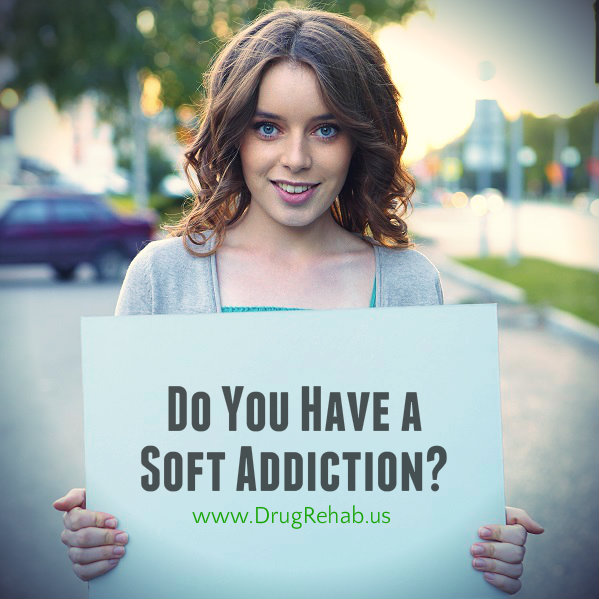 If your shopping habit is more of a soft addiction, on the other hand, you aren’t out of control. It’s probably something you do to relax or escape from the day’s stresses. You might spend a half hour online browsing a couple days a week, or you spend Saturday afternoons at the mall buying a couple of new outfits. You spend more than you should, but you aren’t going into debt and you don’t feel out of control.
If your shopping habit is more of a soft addiction, on the other hand, you aren’t out of control. It’s probably something you do to relax or escape from the day’s stresses. You might spend a half hour online browsing a couple days a week, or you spend Saturday afternoons at the mall buying a couple of new outfits. You spend more than you should, but you aren’t going into debt and you don’t feel out of control.
Recognizing Your Soft Addictions
Soft addictions are insidious and hard to recognize. Think of the times during the day when you engage in an activity mindlessly. It could be spending time online, watching TV, reading celebrity magazines or even gossiping with coworkers. These habits aren’t always bad. Some amount of mindless activity is helpful for coping with stress. But when you lose too much time to them, you need to make a change. Pick out what you think might be your soft addictions and then record how much time you spend on them, how they make you feel, and what you could have been doing instead that would have been more rewarding.
Changing Your Behaviors
When you start to recognize your soft addictions, you will begin to realize you are wasting time on meaningless things. You’re on Facebook when you should be productive at work. You’re watching mindless reality TV when you should be connecting with your partner. Changing these habits won’t be easy, but it will be rewarding. Start by setting time limits. When you sit down to watch those reruns you’ve seen a million times already, give yourself half an hour to relax and then turn the TV off.
At the end of your time limit, find something better to do, and make sure it isn’t another mindless bad habit. Call a friend you haven’t spoken to in a while. Have dinner with your partner and have a meaningful conversation. Get started on that home project you’ve been putting off. Do something creative, like painting or writing. Read a piece of classic literature. The key is to do something meaningful.
When you start noticing your soft addictions and begin replacing them with more meaningful activities, you will realize just how rewarding it is to make these changes. Soft addictions try to fill holes in our lives, but they fail, and they can turn into true addictions. Be aware and start making changes now for a better life.
Read More About Behavioral Addictions
A new study has investigated the widespread use of cell phones and smartphones in the U.S., leading many experts to suggest taking some time out of each day to disconnect in order to protect against the potentially addictive effects of technology use. The findings may be a little basic—focusing about as much on connection problems and telemarketing as potential markers of addiction—but they still serves as a wakeup call to the impact cell phones may be having on both American youth and adults.
So does the risk of Internet and technology addiction mean you might need to disconnect? The evidence seems to say so, but precisely defining these addictions is harder than it might seem.
Cell Phone Use And Time Staring At Screens
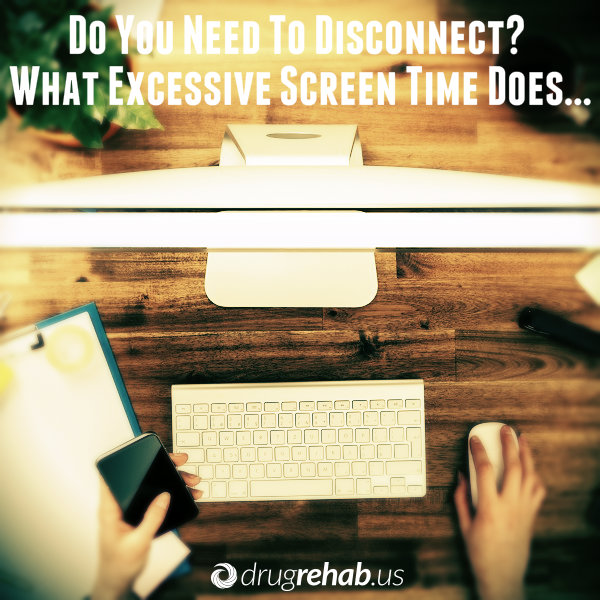 The most basic finding from the research is that 90 percent of American adults have a cell phone, and 58 percent have a smartphone. In addition to many more mundane findings, the results strongly hint at a problem with excessive smartphone use.
The most basic finding from the research is that 90 percent of American adults have a cell phone, and 58 percent have a smartphone. In addition to many more mundane findings, the results strongly hint at a problem with excessive smartphone use.
In particular, the survey revealed that 44 percent of cell phone owners have slept with their phones next to their beds so that they wouldn’t miss calls, texts or other updates through the night. Over two-thirds of cell phone owners check for messages or updates even if their phones don’t ring, sound a tone or vibrate, and about three in 10 say they couldn’t imagine living without their phones.
Americans spend an average of seven hours and 24 minutes staring at screens each day, and for 8- to 10-year-old children, the average is eight hours. Teens spend the most time looking at screens on average, reaching a huge 11 hours per day.
An Overstimulated State
The increasing use of cell phones has many direct impacts, relating to both being connected and spending so much time looking at screens. Constant checking of your cell phone can make it harder to fall asleep, keeping your brain in an anxious, overstimulated state. This same effect occurs when messages you send aren’t responded to quickly—you find yourself checking your phone and possibly worrying that your message didn’t come across as intended. Research suggests that staring at screens makes people less creative and less productive.
There are also more obvious consequences of excessive cell phone use, in particular spending less time socializing with people in real life or engaging in hobbies. Even when people do socialize, it’s becoming increasingly common for a group of people to sit staring at their screens while ignoring the people around them.
Technology And Internet Use As Addictions
Internet addiction has yet to be officially acknowledged as a condition by the Diagnostic and Statistical Manual of Mental Disorders (the DSM), but most experts—who are seeing increasing numbers of people seeking help for technology and Internet addictions—accept its existence. It might seem counterintuitive that an addiction can persist without a substance, but addiction really comes down to the effect something has on the brain, and other behavioral addictions such as gambling addiction have gained widespread acceptance because of these addiction-like effects on the brain.
Looking at the definition of addiction in a broad sense also reveals the striking similarities with excessive Internet and technology use. Addictions of any kind are characterized by an inability to control how often you engage in an activity, feeling urges or cravings to engage in the activity and continuing with it despite negative consequences.
Internet and technology addicts run into problems with work and school when they’re unable to stop surfing the Internet or using their devices. They may also jeopardize relationships and suffer withdrawal-like symptoms when they’re disconnected.
The similarities are hard to deny, but there are still some problems with classifying technology or Internet use as an addiction. First, the Internet (and technology used to access it) often serves as a method to access other addictive media, like pornography, online casinos or video games, so it’s hard to pin down whether somebody is addicted to the Internet or something else that’s accessed online. Additionally, it’s difficult to define just how much use is too much.
These problems are more technical than anything, however. Real-world examples of people ruining their lives over excessive Internet or technology use and being unable to stop speak volumes about the problem. Clearly, something unusual is going on.
Disconnecting To Protect Against The Risk
Internet and technology addiction are almost certainly real conditions, and we need to take the risks seriously because the vast majority of Americans now use Internet-equipped devices. Although full-blown technology or Internet addiction won’t affect most of us (like most addictions won’t), taking steps to guard against overuse is a prudent move. Many experts recommend simply disconnecting for an hour each day, preferably before bed, but doing so any time throughout the day is beneficial. There are apps designed to help you limit the time you spend on your smartphone.
There are many similar approaches available that are suitable for less severe cases, and many more professional counseling or rehab programs if you’re struggling with a more serious addiction. As we continue to spend more and more time online, thinking about the extent of our use and its consequences is becoming increasingly important.
Read Our Other Intriguing Posts On Internet Addiction
Prior to 2013, doctors in the U.S. diagnosed serious gambling problems under the heading of a condition called pathological gambling. However, in May of that year, the American Psychiatric Association eliminated the pathological gambling diagnosis and replaced it with a new, modified diagnosis called gambling disorder.
In a study published in 2014 in the journal Psychology of Addictive Behaviors, a team of American researchers compared the accuracy of the definition for pathological gambling to the accuracy of the definition for gambling disorder. These researchers concluded that the definition for the newer diagnosis has retained a high degree of accuracy in properly identifying affected individuals.
Pathological Gambling
The American Psychiatric Association (APA) included pathological gambling with a larger group of conditions called “impulse control disorders not elsewhere classified.” Other illnesses found in this category included pyromania, an anger control-related condition called intermittent explosive disorder, and kleptomania.
Pathological Gambling Symptoms
Doctors diagnosing pathological gambling looked for the presence of a minimum of five out of 10 potential symptoms. These symptoms included:
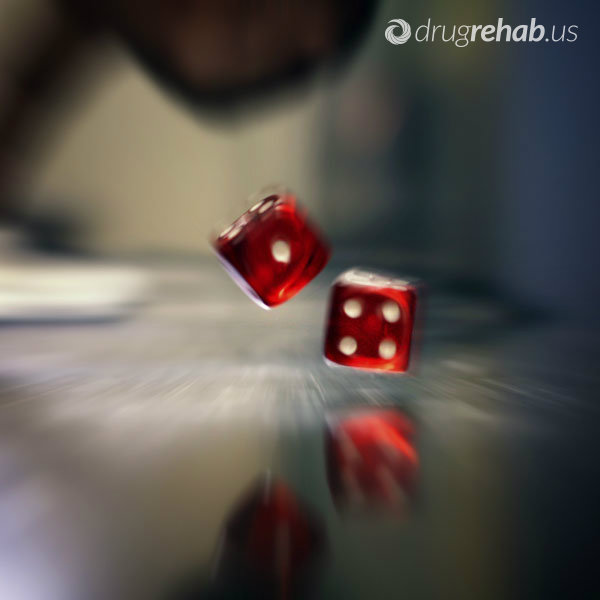 fixation with gambling while not actively involved in gambling,
fixation with gambling while not actively involved in gambling,- demonstrated inability to place limits on gambling participation,
- compulsion to engage in increasingly risky gambling situations, a
- reliance on gambling to cope with or avoid painful emotions or personal problems,
- returning to gambling rapidly after incurring substantial losses,
- concealing the extent of gambling involvement from others,
- relying on other people’s resources for gambling participation,
- gambling-related exposure to serious harm in personal or social relationships, and
- the onset of mental/psychological withdrawal when gambling participation stops or declines
The pathological gambling definition also included funding of gambling through illegal means as a potential symptom.
Gambling Disorder
In 2013, the APA simultaneously eliminated the pathological gambling diagnosis and placed the gambling disorder diagnosis in a new category of conditions called addictive disorders. These disorders are behavioral addictions that stem from problematic involvement in certain pleasurable, everyday activities rather than from the repeated, excessive use of drugs or alcohol. Gambling disorder is the only illness the APA has added to the addictive disorders category.
The definition for this condition largely resembles the previously used definition for pathological gambling. However, the American Psychiatric Association eliminated funding gambling through illegal means from the list of symptoms. In addition, the organization reduced the lower limit for diagnosing gambling disorder to four out of 10 symptoms, compared to the five out 11 symptoms limit used for diagnosing pathological gambling.
Has The Change Affected Accuracy?
In the study published in Psychology of Addictive Behaviors, researchers from the New York State Psychiatric Institute, the National Institutes of Health, and the University of Connecticut used information from a large-scale federal project called the National Epidemiologic Survey of Alcohol and Related Disorders (NESARC) to compare the accuracy of the symptom set used to define pathological gambling to the accuracy of the symptom set used to define gambling disorder. A total of 43,093 people were involved in this comparison. These individuals came from demographic backgrounds reflective of the national population. The researchers analyzed the gambling problems in this group as a whole and in each major demographic subgroup.
After completing their analysis, the researchers concluded that the new gambling disorder definition correctly identifies serious gambling problems in roughly 99 percent of those individuals who would have been diagnosed under the old pathological gambling definition. They also concluded that both definitions do an equally good job of identifying people not affected by serious gambling problems. These findings applied to the NESARC participants as a whole, as well as to all of the demographic subgroups found among the NESARC participants.
The study’s authors concluded that the switch from pathological gambling to gambling disorder and the associated elimination of funding gambling through illegal means as a potential symptom have had a minimal effect on doctors’ ability to accurately diagnose dysfunctional gambling behaviors. However, they also concluded that the lowered symptom requirement for gambling disorder will lead to an uptick in the number of people who receive a diagnosis. Still, despite this uptick, the overall number of people affected by diagnosable gambling problems will continue to be fairly small relative to the total population.
04 May 2015
New App Aims To Tackle Smartphone Addiction
The debate surrounding smartphone addiction is in many ways a sign of our times, but it also raises crucial questions about how we define addiction.
Are we addicted simply because we use our Internet-equipped cell phones a lot? Anybody familiar with addiction knows that it isn’t as simple as this, so the argument that our growing use of the devices represents a widespread addiction—while not necessarily wrong—oversimplifies the situation.
However, when you consider other behavioral addictions such as gambling—including the impact they have on the brain—it’s clear that smartphone addiction is a real condition. So how do we reduce our smartphone addiction? In this age where there seems to be an app for everything, it was only a matter of time before we encountered something like Instant, a new app that aims to tackle smartphone addiction.
Smartphone Addiction 101
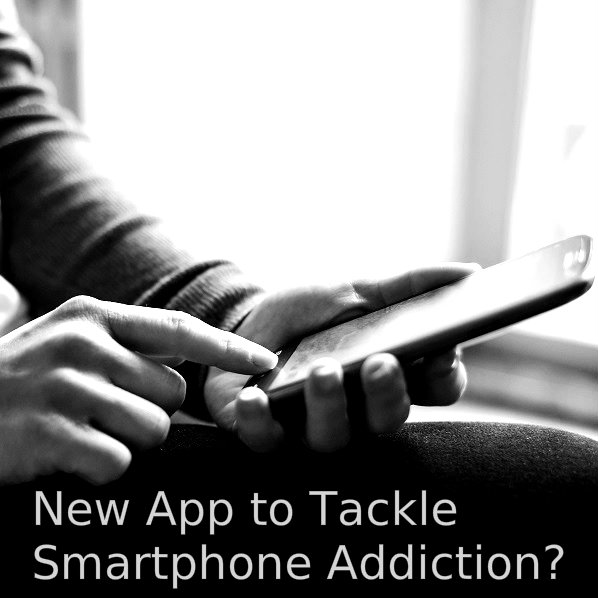 The definition of addiction is the key issue when discussing smartphone addiction, and despite the historical viewpoint that only substances could lead to addiction, behavioral addictions to things like gambling or sex have forced us to reexamine that way of looking at things.
The definition of addiction is the key issue when discussing smartphone addiction, and despite the historical viewpoint that only substances could lead to addiction, behavioral addictions to things like gambling or sex have forced us to reexamine that way of looking at things.
The reason relies on the neurochemistry of addiction: drugs are addictive because of the effect they have on natural brain chemicals such as dopamine. Other activities (like gambling or playing video games, for example) have a similar effect on these chemicals.
For smartphone addiction, it can also help to look at the situation in a more straightforward way. Addiction is characterized by tolerance (needing to do or take more of something to get the same effect), withdrawal (negative side effects when the substance or activity is stopped) and being unable to control the behavior despite negative consequences.
Signs Of Smartphone Addiction
Based on this, it’s clear that someone who has the following signs is potentially addicted to their phone:
- spends increasing amounts of time on his or her smartphone
- feels anxious or panicked when he or she is separated from it
- gets in trouble at work or school (or whose relationships suffer) due to smartphone use
Although only a small proportion of people are prone to full-blown addiction, as with alcohol, somebody who uses it too much could be considered a “problem” smartphone user.
Tracking Smartphone Usage In A Simple Format
Instant (available on Google Play for free and Blackberry World for 99 cents) is made by Indian startup Emberify and has fairly basic functionality. It records the number of times you unlock your phone and then keeps track of the amount of time the screen is left active. The accumulated data for each day is then displayed on a simple bar graph, making it easy to get the information you need at a glance. Other attempts at accomplishing the same thing, such as an app called Frequency, have focused on the time spent on specific apps, so Instant’s focus on overall smartphone-usage time makes it easier to digest what is effectively the same information.
According to company founder Shashwat Pradhan, “Instant works on the same principle of fitness trackers, with graphs and limit reminders.” The “limit reminders” basically allow you to set a limit on your daily usage and give you reminders of how much time you have remaining at user-designated intervals throughout the day. Pradhan has reduced his daily smartphone use from 120 to 50 minutes, which he attributes to an increased awareness of his usage habits.
New App, Instant Helps Problem Users, But What About True Addicts?
Instant is a promising development for more everyday users who’ve developed some problematic smartphone usage habits, but its stated goal of reducing smartphone addiction seems suspect. For a problem user, the regular reminders and daily limits indeed have the potential to promote awareness and thereby make it easier to say when enough is enough. This isn’t a trivial benefit—most people who use their smartphones too much will fall into this category, so it has the potential to avert growing issues for many of us.
The people Instant is highly unlikely to help are the addicts. To understand why, think about what the equivalent would be for substance users. It’s like saying to an alcoholic: you can drink five beers today, but no more, and I’ll give you reminders every few hours of how many drinks you’ve consumed. Would that defeat alcoholism? No! One of the hallmarks of addiction is attempting to limit yourself but being unable to do so. An alcoholic may have all the best intentions of drinking only five beers from a six pack, but the whole issue is that when that final beer is staring him or her in the face, best intentions are discarded and the remaining drink is cracked open.
Realistically, Instant is even more limited than the above example. For one, the limit is self-imposed, so individuals may not be strict enough in their goals. More importantly, the app is just that: a piece of software that you’re highly unlikely to feel like you have to answer to. You’ve gone over the limit? So what—nobody needs to know about it, and there is no punishment. Finally, as with all addictions, psychological support is a necessity to understand what drives the behavior and to teach the individual better ways to cope without it. Addicts struggle to get clean alone because addiction is a complex psychological issue that most people need professional support to effectively overcome.
Smartphone App Potentially Helpful, But Not For Everyone
There are many people whom Instant has the power to help, but sadly those who need it most will have inadequate support. Perhaps in the future, there will be a similar app incorporating psychological support with interactive lessons and coping tips that may actually help addicts. For now, Instant is a fantastic option for problematic smartphone users, but true addicts are still better off with traditional treatment approaches.
Find Out How Your Smartphone Obsession Is Bad For Your Health
You may be addicted to your smartphone, and if you are, your health is suffering. No, your phone is not a drug, but if you get anxious and panicky when you misplace it for two minutes or you check for new texts or Facebook updates every five seconds, you’re acting like an addict.
Sure, smartphones have made our lives easier and more convenient. They have even eliminated boredom from our daily existence, but at what cost?
Read on and you may decide to scale back your attachment to your favorite device.
Your Pocket Is Vibrating, Or Is It?
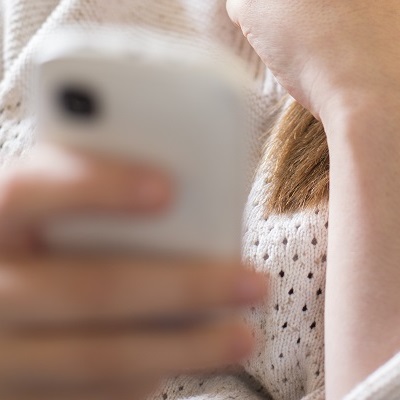 Phantom vibrations — when you think your phone just notified you of a message so you look at it and find nothing — are common among obsessed smartphone users. This phenomenon seems funny, but it’s a psychological disruption.
Phantom vibrations — when you think your phone just notified you of a message so you look at it and find nothing — are common among obsessed smartphone users. This phenomenon seems funny, but it’s a psychological disruption.
The next time you experience a phantom vibration, check your emotions. Did it make you feel anxious? Were you excited when you thought you had a new message or update, and were you disappointed to find you didn’t?
Did you then check your phone compulsively, sure that a notification was about to present itself? Anything that makes you feel this way is not healthy.
Your Smartphone Is Disrupting Your Sleep
Do you keep your phone on your bedside table? Do you scroll through it just before closing your eyes to sleep at night? Do you pick it up as soon as you wake up in the morning? While for safety and emergency purposes it seems justifiable to keep your phone next to your bed, your habits in using it are probably causing you to lose sleep. Studies have found that the type of light produced by your smartphone disrupts the production of hormones you need for good sleep. This means that it’s more difficult to fall asleep after screen time.
Another way your nighttime phone habit is interfering with your sleep is more psychological. You aren’t fully disconnecting from work and other preoccupations before you try to sleep at night. If you can’t detach, you will have trouble falling asleep, and your sleep may be disrupted because you are still thinking about work and other responsibilities. Stay away from the screen and turn off notifications two hours before bedtime to drastically improve your sleep and your energy levels during the day.
Your Smartphone Is Damaging Your Eyes
This is a scary one because it could have a lasting impact on so many people. The time you spend watching your phone’s screen is increasing your risk of eye damage. The bluish light from your smartphone that disrupts your sleep is also bad for your eyes. Exposure to it puts you at risk for macular degeneration, which is the most common cause of blindness. It is extended and frequent exposure to this light that causes damage, so if you cut back your time with the phone, you can cut out the risk.
Do You Have Nomophobia?
This modern problem is the fear of losing your phone: no-mobile-phone-phobia. According to a survey conducted by a British tech company, nomophobia is on the rise. Out of 1,000 people surveyed, two-thirds were seriously afraid of losing their phones. Nearly half keep two phones because of this fear, and young people are the most nomophobic. If you feel anxious and break into a cold sweat just thinking about misplacing your phone, you probably have nomophobia.
Tips For Those Struggling With Smartphone Obsession
Smartphone addiction is a serious problem for more and more people. To make sure that you aren’t suffering because of your phone use, cut back on your screen time. Stop using your phone before bed and refrain from touching it in the morning, at least until you are up and making coffee. Take breaks from it throughout the day and even consider taking one whole day each week away from your phone. It will be hard at first, but you won’t regret cutting back.
Learn More About Other Behavioral Addictions
09 Mar 2015
Are You Addicted To Love?
Yes, it’s true. You can be addicted to love. This isn’t the same as a sex addiction, although it can manifest certain sexual behaviors. Love addiction means that you are obsessed with being in love, whether with one particular person or with fantasies about love and romance. Love addiction is what we call a process or behavioral addiction. You aren’t hooked on an illegal drug or alcohol. You are addicted to a behavior, a pattern of thoughts and a fantasy of love that isn’t real. Learn to recognize it in yourself and how to get help.
Recognizing Love Addiction
A behavioral addiction like this may not seem as serious as a chemical addiction. You’re not shooting up heroin or drinking vodka in the morning, how bad could this be? Behavioral addictions are destructive in their own ways. It is just as important to recognize harmful patterns of a behavioral addiction and to get help as it is for a drug addict to get sober.
Signs Of Love Addiction
 There are a few different ways in which a love addiction can manifest. If you are worried about your current relationship, consider these signs:
There are a few different ways in which a love addiction can manifest. If you are worried about your current relationship, consider these signs:
- You constantly break up and get back together with your current partner.
- Your friends and family tell you they are worried about your relationship or that your partner isn’t good for you.
- You start to fee lost or empty when not with your partner.
- You feel desperate when you break up. You feel like you can’t go on without him.
- When you get back together you feel a sense of euphoria or a high. You break up and make up to chase that feeling.
A love addiction may also be present even when you don’t have one particular partner. You may constantly seek out the euphoric feeling when you first start seeing someone by starting and ending relationships quickly. In other words, you are hooked on the early infatuation of a relationship, but get bored as it becomes routine and normal.
You might also be addicted to love and romance fantasies. Maybe you read romance novels compulsively, one after the other, and dream of having a fantasy love life. You find yourself constantly disappointed with your real-life relationships because they can’t compare with the fantasies you have imagined.
Getting Help For Love Addiction
If you are worried that you might have a love addiction or are headed down that road, recognizing it is the first step. Now you can take steps toward getting better and learning to have healthy and realistic relationships that satisfy your natural need for love and intimacy. If you are in a relationship that seems unhealthy, take a step back. Slow it down and think about ending it if necessary. Talk to your partner about your concerns. If he is not supportive of making changes, it’s probably time to break up.
You should also consider seeing a therapist. A professional experienced in working with love addicts can help you clarify your situation and figure out how to change your attitudes and behaviors toward love and relationships. Also consider joining a support group. There are groups for love addicts, and making social connections with people who understand your situation can be a powerful and healing experience. Here you will be able to share your story without fear of judgment, learn from the stories of others and have new friends to hold you accountable. Love addiction is not drug addiction, but it can be harmful and it hinders your ability to have satisfying relationships. Evaluate yourself now and get help if you feel you need it.
A New Beginning Can Be Yours – Don’t Be Ashamed To Call Us Now For Help – You Deserve Better!
19 Jan 2015
Is Your Partner A Compulsive Gambler?
Gambling can be a fun, and sometimes profitable pastime, but it is an activity that can easily spin out of control. It goes by many names: compulsive gambling, problem gambling and pathological gambling. Whatever you call it, gambling addiction is a serious problem that can lead to severe negative consequences.
Signs And Symptoms That Your Partner Is A Compulsive Gambler
If you suspect that your boyfriend or husband has a problem with gambling, you should learn to recognize the signs of an addiction and sit him down for an important conversation about slowing down or getting help.
Early Signs Of Problem Gambling
No addiction starts out at full speed. If your partner has a problem with gambling it probably started out innocently enough. Maybe he had a big win at a casino trip and wanted to keep trying to win again. Maybe he started playing online poker after work to unwind and now can’t stop.
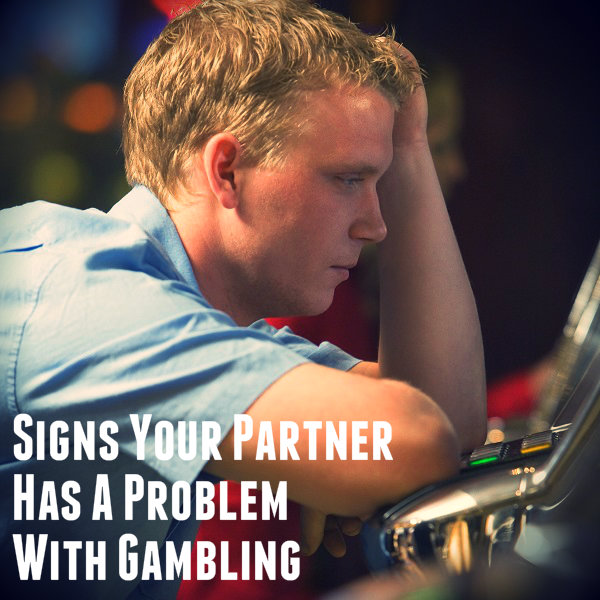 If he is in the early stages of compulsive gambling, you have a good chance of convincing him to make some changes. Early signs and symptoms of gambling include:
If he is in the early stages of compulsive gambling, you have a good chance of convincing him to make some changes. Early signs and symptoms of gambling include:
- A preoccupation with gambling.
- Lying about time spent gambling or amounts of money lost.
- Gambling to soothe negative emotions such as stress, depression or anxiety.
- Cutting out other interests and hobbies in favor of gambling.
- Gambling in spite of negative consequences, such as big losses or arguments about time spent gambling.
- Trying to cut back on gambling time, without much success.
Symptoms Of A Gambling Addiction
The early signs of a gambling problem may be hard to recognize or pin down. They may be mild enough that you and your partner are able to deny that there is an issue. If you don’t confront the problem you could be facing a worsening obsession with gambling and even an addiction or a case of pathological gambling. Here are some signs that your partner has a serious problem with gambling and needs help:
- He feels restless, irritable and anxious when he can’t get to the casino or to an online gambling site. These are symptoms of withdrawal and a sign of a behavioral addiction.
- He has developed a tolerance. This means that his usual time spent gambling doesn’t feel like enough anymore. He needs to spend more and more time gambling to feel good.
- He is experiencing serious financial setbacks because of gambling and yet continues to do it. A hallmark of any addiction is continuing in the face of serious negative consequences. For gamblers, this usually means losing a lot of money. He may even lose his job because of missed time or gambling online while at work.
- He takes extreme measures in order to gamble more. This may mean stealing to fund his habit or taking out big, risky loans.
- He experiences manic episodes when winning and severe depression when losing. His emotions are deeply tied to his gambling.
What To Do If You Believe Your Partner Has A Problem With Gambling
Compulsive gambling is a serious problem and is one that can tear relationships apart. If your partner is exhibiting any of the signs of having this problem, it’s time for an important discussion.
Approach your partner with concern and compassion and suggest that he may have a problem. Explain how his gambling is impacting your life and your relationship and offer to help him quit or cut back. If he refuses help or is in denial, don’t give up. Ask other family members or friends to confront him as well and be prepared with options for getting professional help.
Take steps now, before it is too late and your relationship is completely destroyed by gambling addiction.
Do Heroin And Gambling Addicts Share Similar Brain Changes? – Find Out Now
Do You Or A Loved One Need Help With A Substance Or Behavioral Addiction?
Call Us Now To Take The First Step Toward A New Life…You Are Worth It!
16 Oct 2014
How To Prevent And Correct Video Game Addiction
What do you do if you have a child, most likely a son, who plays Internet or video games obsessively? How do you know if he has gone too far and spends too much time gaming? And how do you get him to cut back? Whether an addiction to gaming is diagnostically real is up for debate by the experts, but the fact remains that people can become obsessed with gaming to the detriment of other aspects of their lives. It’s important for parents to monitor a child’s gaming and set limits if it gets out of hand.
Gaming Addiction?
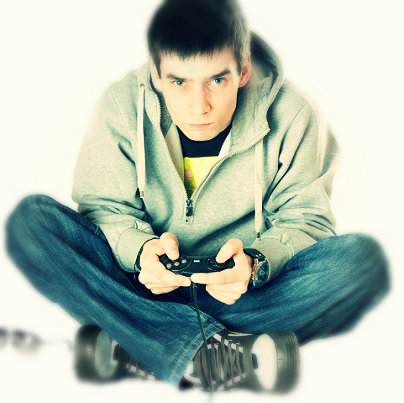 The Diagnostic and Statistical Manual of Mental Disorders is the number one resource for diagnosing any kind of mental disorder or condition, including addiction. In the latest edition, DSM-5, experts decided not to include Internet gaming disorder as a diagnosable condition. They did, however, list it in a section for potential disorders requiring further research. This means that there is a possibility that Internet gaming and video gaming can be problematic for individuals and can approach addictive-like levels.
The Diagnostic and Statistical Manual of Mental Disorders is the number one resource for diagnosing any kind of mental disorder or condition, including addiction. In the latest edition, DSM-5, experts decided not to include Internet gaming disorder as a diagnosable condition. They did, however, list it in a section for potential disorders requiring further research. This means that there is a possibility that Internet gaming and video gaming can be problematic for individuals and can approach addictive-like levels.
DSM-5 describes gaming disorder as characterized by compulsive playing, avoiding other activities and interests in favor of gaming, and distress or impairment as a result of these behaviors. Some obsessive gamers even experience withdrawal-like symptoms when their games are taken away. It turns out that this issue of compulsive gaming is a real problem with some kids. Research has found that among boys who game, 12 percent fit the definition of addicted, while 8 percent of girls do.
Preventing And Correcting Obsessive Gaming
Whether or not this obsessive level of gaming gets labeled as an addiction is largely unimportant. As long as experts recognize that some young people truly have a problem with gaming and have the resources to help them, labeling doesn’t matter. If you are the parent of a child who enjoys gaming, be aware of the issue and be prepared to act if you think your child has a problem.
Signs Of A Problem With Gaming
First it is important to recognize the signs of a problem. Your child may be at risk of a gaming addiction if he can’t seem to stop playing, even when you repeatedly ask him to stop. He may also lie about how much he plays games and may start to lose interest in other activities he used to enjoy. Others signs of a problem are slipping grades or being tired from gaming too much. If your child is already showing some of these signs and you can’t get him to stop, it may be time to get some professional help. A good therapist, recommended by your pediatrician, will be able to help get you started.
If your child is not yet showing signs of a problem, but you’re still worried, there are some steps you can take to avoid a gaming addiction. Start by setting limits. Your child should not have free reign to play games whenever and for as long as he wants. Set aside a certain time during the day and do not allow gaming at any other time. Another great way to get kids off of games and devices in general is to engage in family activities unrelated to technology. Take a hike together, go to the park, go to the pool or take a camping trip and outlaw devices for the duration.
It is also important to talk to your child about your concerns. Explain how it is easy to get obsessed with certain activities, like gaming, and how that can be bad for you. Being open with your child is a great way to foster trust and communication and to help him understand why you set limits.
Read This Post To Find Out If Your Child Is Addicted To Gaming, The Signs And What To Do


